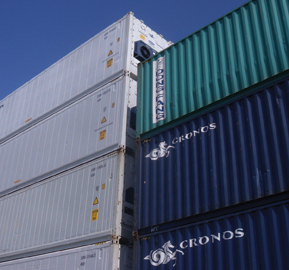Learnings from the covid pandemic – a ‘shock lesson’ – have been used, to make supply chains resilient to future shocks – whether cyber attack and data breach, or extreme weather or natural disaster. That’s according to the 13th edition of the BCI (Business Continuity Institute) Supply Chain Resilience Report.
It’s free to download if you sign up via the BCI website.
Rachael Elliott, Head of Thought Leadership, at the BCI, chaired an online launch of the EMEA report this morning. She noted that from the responses, many organisations are still failing to make basic checks on the business continuity and resilience plans of their most critical suppliers, and reporting data on disruptions is frequently held in Excel spreadsheets (rather than, dedicated software for business continuity management) and then stored, and siloed; not shared in the organisation.
Boardroom and top management commitment has increased, as a result of the pandemic. While many state that the impacts of covid-19 have been mitigated, supply chain disruptions are still very much an issue, people-related disruptions such as due to lack of skills, or illness. The proportion of organisations not reporting on supply chain disruptions remains static.
Rachael Elliott said: “During the pandemic, we were buoyed by a significant uptake in the amount of attention supply chain resilience was earning from senior management. This helped to buoy a number of positive changes being adopted into supply chain strategies: more reporting, more attention to supplier due diligence, and more investment in technology to help manage supplier resilience. Whilst this attention has become more muted as the problems associated with COVID-19 start to wane, it is encouraging to see that organisations remain convinced of the importance of elevated levels of reporting, of introducing supplier due diligence at an early stage in contract negotiations, and rethinking the threat landscape when considering potential future impacts on supply chains. Good progress indeed, but we, as resilience professionals, need to continue to work hard to promote the importance of supplier resilience to senior management to retain their ongoing support.”
And Jeff McDonald, Executive Vice President, at SGS, the certification body that sponsored the report, said: “As the world picks up the pieces following the pandemic and looks to face a global recession, businesses need a beacon of certainty and the knowledge to build resilience. This is why we are proud to sponsor this wonderful report. By cleverly combining detailed data and in-person interviews, this document brings you the latest supply chain resilience information. It also brilliantly combines lessons from the past with present and future potential issues to give you a rounded picture.
“Although the future looks bright for business continuity, as many businesses continue to pursue the practice to ensure their prosperity and future, we cannot overlook the fact that managing supply chains is not a one-time activity. It is something to be approached persistently and consistently. Organisations must understand the current landscape, create a plan, implement best practices and be ready to take action to mitigate risks. Whatever stage you are at, our Supply Chain Assurance and business continuity services are here for you.”










